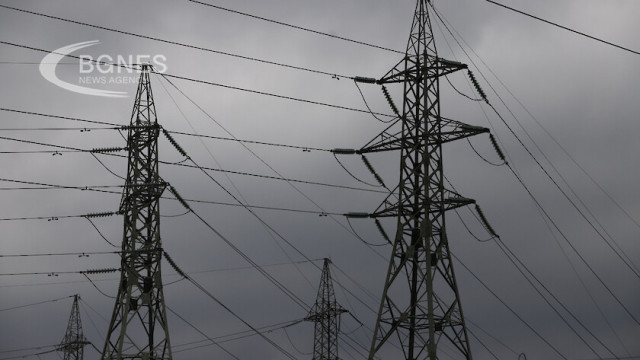Average electricity prices for households in the first half of 2023 in the European Union are the lowest in Bulgaria (11.4 euros per 100 kWh), BGNES reported.
After a significant price increase that started before Russia's invasion of Ukraine but spiked in the second half of 2022, electricity and gas prices are stabilizing, EU statistics office Eurostat said
Energy prices rose due to rising natural gas prices. This happened because imports from Russia decreased and other importers were sought. The price of natural gas affects the prices of the electricity market as a whole. Mechanisms were built to ease the pressure on consumers and one of the mechanisms was subsidies.
In the first half of 2023, average household electricity prices in the EU continued to show an increase compared to the same period in 2022, from €25.3 per 100 kWh (kilowatt hour) to €28.9 per 100 kWh. Average gas prices also increased compared to the same period in 2022, from €8.6 per 100 kWh to €11.9 per 100 kWh in the first half of 2023. These prices are the highest recorded by Eurostat.
The price without taxes of electricity and natural gas is decreasing. Countries are partially withdrawing their support measures. As a result, final consumer prices with taxes are slightly higher than in the previous reference period.
Compared to the first half of 2022, in the first half of 2023 the share of taxes in electricity bills decreased from 23% to 19% (-4%), and in gas bills - from 27% to 19% (-8%), with all EU countries introducing government reliefs and subsidies or reducing taxes and fees to mitigate high energy costs.
This is clear from data on electricity and gas prices recently published by Eurostat.
Electricity price increases in 22 EU countries in the first half of 2023.
The data also showed that household electricity prices increased in 22 EU countries in the first half of 2023 compared to the first half of 2022.
In national currency, the largest increase (+953%) was recorded in the Netherlands. This increase is related to several factors: the tax relief measures from 2022 were not continued in 2023 and at the same time energy taxes on household electricity doubled. In 2023 a price cap will be included and this will result in a fairly significant reduction in prices at all levels.
Large increases in national currency were also registered in Lithuania (+88%), Romania (+77%) and Latvia (+74%).
Large declines in national currency were reported in Spain (-41%), followed by Denmark (-16%). Smaller decreases were recorded in Portugal (-6%), Malta (-3%) and Luxembourg with almost 0 (-0.4%).
Calculated in euros, the average electricity prices for households in the first half of 2023 were the lowest in Bulgaria (11.4 euros per 100 kWh), Hungary (11.6 euros) and Malta (12.6 euros) and the most -high in the Netherlands (€47.5), Belgium (€43.5), Romania (€42.0) and Germany (€41.3).
Natural gas prices are rising in almost all EU member states
Between the first half of 2022 and the first half of 2023, gas prices increased in 20 of the 24 EU member states.
Natural gas prices (in national currencies) rose the most in Latvia (+139%), Romania (+134%), Austria (+103%), the Netherlands (+99%) and Ireland (+73%). At the other pole are Estonia, Croatia and Italy, which recorded decreases of between -0.6% and -0.5%, while in Lithuania the price remained unchanged.
Average natural gas prices in euros for households in the first half of 2023 were lowest in Hungary (3.4 euros per 100 kWh), Croatia (4.1 euros) and Slovakia (5.7 euros) and the most high in the Netherlands (€24.8), Sweden (€21.9) and Denmark (€16.6). /BGNES







